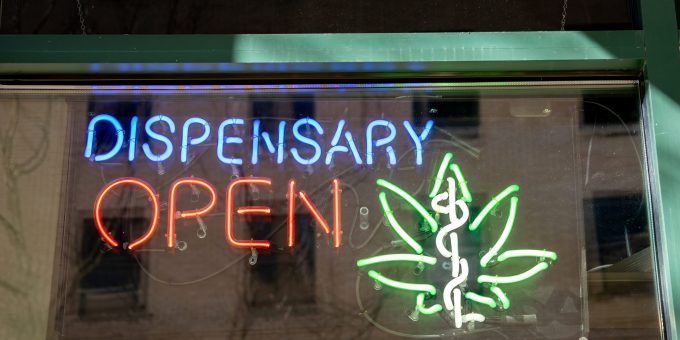
Economically prosperous cities in this study tended to vote for state-level cannabis legalization, but balk at the presence of dispensaries in their communities. iStockPhoto.com // karenfoleyphotography
a cannabis conundrum
Do you support legalizing recreational cannabis? If so, would you be comfortable with a pot shop in your neighborhood? In a recent article published in Law & Social Inquiry, Ekaterina Moiseeva explores how not-in-my-backyard (NIMBY) sentiments have affected the implementation of Proposition 64, the legal instrument that helped to legalize recreational cannabis across California.
Analyzing the register of all cannabis licenses issued in California from 2018 and 2019, the study suggests that economically prosperous cities tend to exhibit greater support for state-level cannabis legalization. Their residents, however, are reluctant to permit legal cannabis business within their communities, even if it means forgoing potential financial benefits. For example, even though 75% and 62% of Santa Monica and Laguna Beach residents, respectively, voted in favor of Proposition 64, both city governments passed ordinances prohibiting cannabis businesses. These communities are known for their affluence, with only 10.7% and 6.6% percent of residents falling below the poverty line. In contrast, cannabis businesses are more likely to obtain permits in economically distressed cities, even those in which a majority of the population voted against cannabis legalization. Cities such as Calexico and Firebaugh, where more than a quarter of the population lives below the poverty line, have adopted permissive cannabis regulations, though only 46% and 42% of their voters, respectively, decided in favor of state-level legalization.
Affluent communities’ concerns about cannabis dispensaries exemplify the presence of drug stigma, which is deeply intertwined with issues of class and race. In this case, the disparity between the demand for cannabis legalization in predominantly White middle-class communities and the supply of cannabis businesses in economically disadvantaged Hispanic communities highlights the enduring vestiges of the stereotypes perpetuated by the War on Drugs. NIMBYism, then, distinguishes between what is considered normal versus pathological, and it grants further privileges to groups, predominantly White middle- and upper-class individuals, considered appropriate for setting community norms. To evaluate the impact of the cannabis reform movement, the author highlights the importance of directing attention toward the economically disadvantaged communities whose priorities are often overlooked due to NIMBYism.